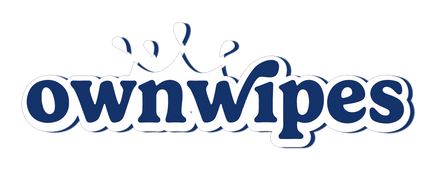When my daughter, Ellie, was six months old, she developed eczema. I was so puzzled because I thought babies who were breastfed wouldn't get eczema. I've been exclusively breastfeeding her, so why did Ellie still get it? My husband said Ellie must be allergic to my breast milk.

I wasn't convinced, so I took Ellie to see a doctor. After discussing my diet and Ellie's routine, the doctor explained that eczema can be caused by a variety of factors, such as food allergies or environmental irritants. She said that regardless of the trigger, eczema often occurs because babies' skin is very sensitive and easily irritated. While Ellie's eczema isn't severe, the doctor recommended we find the underlying cause to prevent it from worsening.
These are the methods the doctor proposed:
Firstly, start by eliminating the simplest environmental factors: ensure proper ventilation. The home environment should be cool, well-ventilated, dry, and clean. The child's living space should be ventilated frequently to keep the air fresh at all times. Prolonged exposure to a closed environment can lead to stuffiness, which can significantly increase the risk of eczema. Fresh air can alleviate this condition and reduce the child's discomfort. Additionally, it's important to avoid carpets and animal hair. (Unfortunately, our beloved dog, Blaze, may need to stay at Grandma's for a while.)


Secondly, opt for soft, loose cotton clothing to keep Ellie comfortable. Dress her according to her palm temperature; they should feel slightly cool. Avoid overheating as it can worsen eczema.(That's a great suggestion. I've always been concerned about her getting chilled, so I'm unsure about how to adjust her clothing.)


Thirdly and importantly, minimize chemically exposure. When bathing Ellie, use warm water as much as possible instead of bath products. Similarly, when changing diapers or cleaning her face, use a cotton towel or soft tissue dampened with warm water to gently wipe her skin. Then, blot the area with a dry cotton towel or tissue to remove excess moisture. Try to avoid using pre-made wipes as they often contain more or less chemicals. Even if a wipe claims to contain only pure water, consider this: can a pack of wipes stay fresh for a long time without mold or decay, unlike our wet clothes? Therefore, it's best to avoid both bath products and pre-made wipes. Babies have a natural layer of oils on their skin that helps to protect them from dryness, infection, and irritation. These products can strip away this protective layer, leading to or worsening eczema. After bathing or cleaning, apply a fragrance-free moisturizer.(Looks like Dad and I will be using the baby bath products and wipes I stocked up on during Black Friday. )


Fourthly, See if there are any foods she's allergic to. Since I'm breastfeeding, Ellie and I will need to experiment with eliminating common allergens from our diets, one at a time, to see if her eczema improves. These foods include eggs, milk, beans, fish, and peanuts.

Fifthly, do baby exercises with Ellie every day. Research suggests that these exercises can help strengthen her digestive system and boost her immune system, making her less susceptible to allergies like eczema. (I've read about the benefits of baby exercises but haven't tried them yet. I'll have to do some research.)

Given that Ellie's eczema isn’t too severe right now, the doctor said we can use some cream on Ellie’s eczema. She mentioned Vaseline, calamine lotion, and zinc oxide ointment. These should be applied frequently, ideally 6-8 times daily or more.
But if we can't figure out what's causing the eczema, and using lotion and allergy pills doesn't help, and the eczema is really red and itchy, then we need to use a steroid cream.
When using steroid cream, here are a few things to keep in mind:
1. Use it twice a day for at least 1-2 weeks, and you can use it for up to 3-4 weeks straight; for really bad eczema, you can use it on and off for a long time.
2. For eczema on the face and neck, use a mild steroid cream, and for the rest of the body, you can use a mild or medium strength one.
Secondary Staphylococcus aureus infection may manifest as increased redness, exudate formation, and yellow crusting of the original rash. Topical mupirocin 2% ointment is commonly used for treatment.
The doctor ended by saying that infant eczema has a tendency to return. If Ellie's eczema gets worse, I should consult him right away for medication advice. He assured me that Ellie will grow up happy and healthy, and I wholeheartedly agree. I wish all babies a healthy and happy life.

Leave a comment